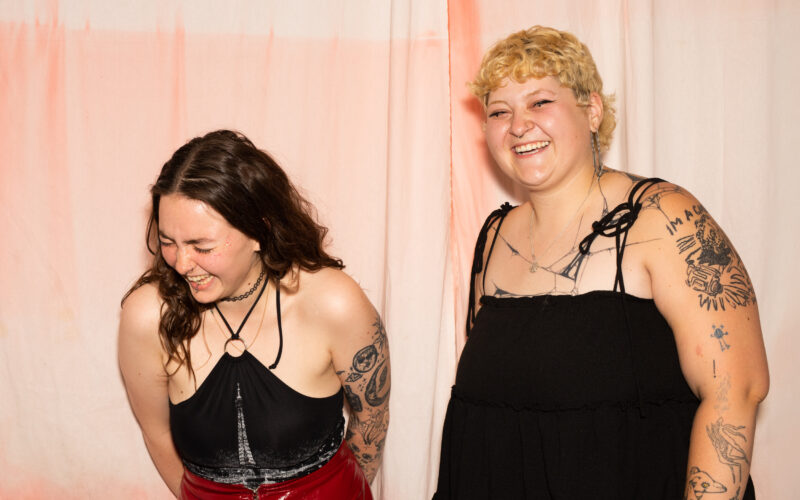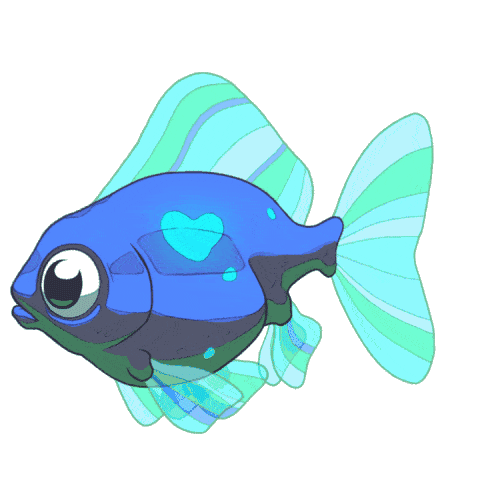Homemade: 8 Years of Endless Illusion
Stepping out of the beaten path requires something, whether it is blind faith or just guts. Above all, it shows determination and passion for what is done. That’s exactly what has characterized Raphael Kosmos and Exhausted Modern, the genre-bending minds behind Endless Illusion. For 8 years they have pushed the boundaries of the local electronic music scene, making themselves a name and creating a space for like-minded people. We sat down with them to talk about the path they have walked these years, where they’re standing now, and what’s yet to come.

Let’s start from the beginning: how did you start DJing?
Ladislav (Exhausted Modern): I started when I was about 16, around the year 2000, about the time I started going to illegal tekkno parties. I had a soundsystem called ‘Chiquita’ with a bunch of people from my old neighborhood, so it was pretty natural to start DJing. I was always trying to find what’s behind: what’s the music, how is it produced, how’s the whole thing working…
Honza (Raphael Kosmos): I started when I was 16 too. I had a friend that had a lot of records, so I was going to his flat and playing his records, mostly hardcore tekkno. Then I bought some records from his collection and then we did some first parties in small places, and I started playing in some soundsystems, like 5 or 6, the main one was Illuzor.
How did your paths cross?
H: We had beef actually (laughs). We both come from the graffiti scene, and we had a meeting because we had some things to solve. Then, we realized we had a lot of things in common, like music, and that we were both DJing.
L: Back then, Honza was already with the crew ‘Weird Highs’ and I was mostly playing on my own in small, cheap clubs around Prague. We both had a common free tekkno past.
Your DJ sets, bookings and releases are characterised by being a deep mix of influences and genres. What are the musical roots of Endless Illusion?
L: Musically, we went through a rollercoaster of genres. We would play electro-house, from names like Erol Alkan, Zombie Nation or Gesaffelstein. It was like a transition to pure electro. I remember discovering it through the graffitti videos Dirty Hands, which had a soundtrack full of electro and synthwave. It was probably the first time we all discovered Drexciya. Other influences I can recall is Soulwax, whose TV Radio focused on music knowledge with an insane record collection, bringing up genres as New Beat.
I also remember finding a release by Alden Tyrell called ‘Times Like These’ (1999-2006), a compilation from The Hague full of electro stuff, and it completely changed my world. From this point I started digging and I found Legowelt, The Hague school and IntergalacticFM. That was a big one. I remember when I discovered it I was working in a corporation and I spent every day listening and saving the tracks in endless lists. This approach to music was completely different. After IFM I realized that if I wanted to take it seriously I would have to go to the roots of the music. Also, regarding the approach to mixing, it taught us that you just don’t have to play one line throughout all the mix, you can include techno, acid, italo, whatever, and don’t care.
H: We could say IFM changed everything because until that time, personally, I was playing records mindlessly. After discovering IFM through Lada we started to dig properly, going to the history and learning something about music by going to its roots. There was also some natural inspiration from the shows because we used to listen to, for example, Legowelt’s ‘Austrounicorn Show’ and he was giving a lot of information about the music. It was really important for a lot of people at that time.


How did Endless Illusion materialize?
L: It was after a period around 2009, when I was digging really intensively. I wanted to share all the knowledge I had gathered, so I started a blog called ‘Endless Illusion’. I would write about music, like Czech electronics and more. Some friends would talk about different topics as well, combining typography, graphic design, architecture… It was more like a multi-genre platform. Then it naturally turned into the label because I wanted to release and nobody was interested in releasing my music at the moment. The label started 2013 with the first release, with a Stephen Lopkin rework.
H: We also played together under that nickname, even though originally it was Analog Zombies. The most important thing is that when we played together people were looking at us like we were some kind of freaks.
What was the reception that you had back then?
H: Most of the first parties were pretty empty, not a lot of people came. With i-F there was like 80 people on the dancefloor, a lot of people from Poland. It was really weird, because we had the legend from the West Coast here, who basically created the Detroit, electro, acid house scene in Europe.
L: We didn’t feel like we belonged into any scene and it was pretty hard. We were really frustrated, there were no people listening to this stuff. We found support maybe in Dimitry (Neo-Violence) or Schwa (Komiks). We made the first, pre-Komiks party ever together in 2013, because there was no proper acid, techno, house party here. It was called ‘Endless-Beef-Violence’. We didn’t even know how to do it.
H: Yeah, we were proper ‘Chicago-heads’ back then. IFM was pushing this sound and we were digging it. Also, Lorenzo, from Cross Club, was the one that gave us some trust at the beginning. We used to play for years in crappy bars for nothing. He was the first one that gave us budget for guests. DJ-TLR from Creme Organization was the first guest ever. The second was i-F and then many other came throughout the years. The first parties were around 2013, and we stopped using the club around 2016. It’s a really cool place, but the problem is that it’s not a club with one similar sound, but with everything mixed up together: techno, drum n’ bass, house… Everything. So sometimes you would have a really weird mix of people. It doesn’t work like that.
We also did smaller parties in other venues, like Cafe Neustdadt, where we got Scientific Dreamz Of U and Marsman, or Cafe V Lese. We had a proper underground party with 2 active speakers and TLR playing. People were dancing until the morning like crazy. Another super cool space that we used sometimes is Underdogs’.
There was a high contrast between the support you found inside and outside of the country. Where did you find encouragement?
L: Yes, that’s true. The support came first from the Netherlands, the guys around IFM, definitely. We started to collaborate with IFM shows after inviting i-F, he gave us the space to do the shows there. We were pretty ambitious back then, trying to bring guests and talking about stuff… After 60 shows we decided to stop talking (laughs).
H: Our first shows were hilarious. Honza Horčík, our main graphic designer, was always making jokes with a broken ‘Cz-English’. It was super fun, there was Marsman on the show, i-F, TLR, Credit 00…
L: Then, Clone saw potential in the label and started to push it, now we have distribution with them. More than that, it was just the Internet: spreading the word, getting feedback globally, messages on SC, building connections… Ron Morelli for instance, with whom we later became friends, was supportive of our activity by commenting, sharing and etc.
H: It’s an Internet bubble, though. Sometimes you meet people from abroad and they’re like ‘Hey you’re that huge label from Prague!’ and we’re like ‘No, man, we’re just a couple of weird guys playing…’.
L: And regarding the global approach, I think you have to think globally always; after all, we live on one planet. I never thought about doing stuff only for the Czech Republic. You have to compare yourself to what’s happening outside. If I compared myself to what was happening here back then, right now I would probably be playing Drum‘n’Bass.
8 years is a long time. Do you think the identity of Endless Illusion has evolved or stayed the same? Did you have any expectations when you started or was the development organic?
L: We didn’t have any expectations, it was completely organic. We basically had to build our scene within the existent ones, there was no space for what we wanted to play before. Musically, there’s definitely some evolution. In the beginning, as Honza said, we were heavily into Chicago House, as we showed with the releases of CCO or DimDJ. I don’t think we would reissue any record from these days. I’m glad we did it back then, but it was a different time.
H: But if we’re talking about expectations, I think we were always doing what we liked. I have to say we’re not good at doing business. We were never thinking about how to make money or promote something. It’s super cool if people follow it, but we don’t even know how to make something from it.
Would you say your focus on your different activities is balanced? Do you put more energy into the label or into the parties?
H: I think it’s 50/50, label and parties. And DJing. It’s super cool to release new records but it’s also important to play.
L: There’s things like Polygon, Cukr, Rare, but nobody considers us a party movement. That was one of our problems: we were always changing the name of the parties! We never follow just one name, we were always using different ones: Space Iz The Place, Afterimage, Haas Effect, Decadance…
DJs are now afraid of putting the crowd in an uncomfortable position, but you need that. It’s not just about fun, but about the experience. I remember this thing i-F said: ‘the world is fucked up, I have no reason to play nice music’. The DJ’s job is to teach people.

Jan Horčík, Jíří Mocek, David Šrot
You also organize the Grey Skies series with whydie?, the founder of RARE. The names you have brought to the city are pretty impressive: The Hacker, Helena Hauff, Das Ding, Black Merlin… How did that come to happen?
L: I started RARE with Václav (whydie?), because we had shared music interests. After a bit I stepped out, because I didn’t feel I belonged. Václav for me is the most underrated promoter in Prague. He’s really enthusiastic, and no one has done more than him. If you see the names he brought to Prague, it’s crazy. People that now play at huge festivals came with him for free, or with really low fees, like Lebanon Hanover and all these kind of projects. I remember how huge names were texting him to see if they could play at RARE, even for free.
H: Then, Grey Skies started because RARE was Václav’s project but we liked the same producers and labels, and we wanted to play together. It would’ve been weird if the party had the name ‘RARE + Endless Illusion’, so we came up with Grey Skies in 2015 and invited Zarkoff, which has EBM influences mixed up with electric guitars. The three of us spend a lot of time together so we’re always sharing ideas and discussing. When we connect, it happens. We are always trying to bring new acts.
I remember the last Grey Skies we held in Tiskárna na Vzduchu was crazy. It was raining very heavily and there was water everywhere. I remember telling to Ian Martin, from IFM, that he should play because an electricity shutdown would come in any moment. And the dancefloor was the only place where people could find shelter from the rain, so everybody was under the roof, dancing like crazy. The party ended up going until the morning, still raining but people dancing. Martin loved it, he said it was some real old-school bunker shit.
You’ve witnessed the scene’s progression for years. What’s your view on the development Prague’s scene has undergone? Do you feel optimistic about it right now? How do you feel regarding the opening of new spaces, for instance?
Both: definitely.
H: It’s hard to say. Sometimes I feel great about it, sometimes I feel totally frustrated. The scene is pretty organic at the moment and there are cool things happening, so you can have 4 parties on a Friday, all crowded and with great vibes. On the other hand, sometimes it’s disappointing because you see people going to a mediocre party just because their friends go there. You don’t see the passion for the music there, the realness. If you talk about the Czech Republic and the progression of the crowd, the support and everything, it changed a lot in the years. It’s something completely different. Before, we were just two weirdos playing Italo, like, ‘what the fuck is that’, and now you play the music and people know it and react on it, which is great. We see that especially at the Grey Skies parties.
L: The scene is huge compared to 10 years ago, but Dimitry (Neo-Violence) had a great point during a recent discussion, because they started saying the scene is really big now and everything. He then mentioned that the real golden age of Czech clubbing took place between 1998 and 2004. Derrick May, Carl Cox, Richie Hawtin were playing for thousands of people. And what’s happening now is not even half of it. But it’s never been better for us, I think. The clubs, like Ankali or Fuchs, give us opportunities. But there’s this one thing I’m not really satisfied with, and that’s labels and producers. We have a creative environment, there are tons of different projects and promoters that can organize huge parties but there are no producers who are releasing stuff outside, no labels doing interesting stuff, no export.
H: That’s kinda the point I wanted to make. I wouldn’t complain about the crowd, but about the DJs. Some people have really successful nights but are playing such boring music. There are some nights that are super hyped, but you’re there and it feels like you’re listening to the same track for 4 hours. But, of course, how can you expect some growth from the scene when the producers and DJs are not creating something else, something different? It’s also about the education. We are still spending a lot of time digging into the roots and learning about the music, I don’t think these people do that. If you don’t know anything about the music, you don’t know anything about how it should sound.
L: DJs are now afraid of putting the crowd in an uncomfortable position, but you need that. It’s not just about fun, but about the experience. I remember this thing i-F said: ‘the world is fucked up, I have no reason to play nice music’. The DJ’s job is to teach people. To play different stuff than other djs. There’s lack of experimental stuff here.
H: And without that, you cannot progress.
We have a creative environment, there are tons of different projects and promoters that can organize huge parties but there are no producers who are releasing stuff outside, no labels doing interesting stuff, no export.

Ondřej Tůma
Tell me a bit about your modus operandi when it comes to releasing: what motivates your choices?
L: Most of it is about releasing music we like, and not to step on other labels’ work. I wouldn’t want to release the same stuff other people have done. Now it kind of evolved and now we are in the position in which we want to build something with a Czech focus. We are considering some local acts.
We are currently having a discussion about what to do with the label, because it’s hard: vinyl is expensive. Now, there’s the cassette revival, but I can’t relate to the medium. If I start releasing cassettes it’s only because I want to have something physical, but I would use the digital version. On the other hand, I don’t want to do digital only releases. I want something in my hands.
H: For me, to do records is just a passion, it’s not to make money or promotion or something like that. It’s to put something out, so you invest all the money you get from the gigs and that’s it. I don’t expect to make anything from it, no profit. In my personal opinion, i’d like to continue to release records, but it takes time because you have to get the money and invest it.
L: And then you have to sell it. The number of likes on Soundcloud doesn’t affect the sales at all.
H: Take for instance the release by Marcos Cabral and Daniel Araya. Laurent Garnier really liked the record. He shared it and there were like 200 comments from really big names saying it was a dope record. It turned out to be the worst-seller, ever. We actually have one release that’s been pending for almost two years, because of pressing plant problems and everything. I don’t expect big sales, it’s more like a ‘freak’ thing, but it’s about that, about putting out something that you like, not caring about the sales. We have delays but we have new things coming up soon.
How do you see the business in the digital era? Do you feel that the new online streaming platforms and piracy are things that are impacting the sales in a dangerous way?
L: There’s also the rise of digital incomes, on the other hand, from Spotify, Bandcamp… So people kind of buy less vinyl but invest more in digital so it’s kind of balanced. Take Knekelhuis for instance, it’s on Apple Music, Spotify, Bandcamp… You have to do it. It’s 2019, people listen to music on their iPhones, so it has to be there. It has to reach them. It’s really peanuts from these services, though, like 0,0005%…
H: Yeah, labels do that. Even the ones that used to be Vinyl only, like Macadam Mambo or LIES Records.

Coming from an artistic environment, the visual identity has been central for Endless Illusion. It was mainly established with Jan Horčík, from Heavyweight, who also came from the graffiti scene and contributed to most label outputs and many events.
When I am asked about a genre or umbrella term to classify the music you play, I find myself with no words. It’s quite hard to describe it, so how would you brand your music profile?
L: I have never been able, it’s really hard to do it. I think you cannot understand it without a proper knowledge. But a tag I would put on it is definitely ‘raw’. Not really polished stuff. No smooth basslines, more punchy. A lot of 90s rave feeling. There’s this ‘punk-ish’ feeling that has to be there, some ‘I don’t give a fuck’ thing.
H: It’s like Toulouse Low Trax. How can you call the genre he’s producing when you can feel the influences from like 10 genres: krautrock, classic tribal… There’s a lot of influences from every corner: 70s, 80s, 90s, all mixed up together somehow. But with a powerful bassline, I need to feel it. Then you’re gonna play a warm-up at 100bpm and it’s gonna be danceable and powerful.
How do you feel towards the 8th anniversary, what are your feelings?
L: It’s really fast. I hear 8 years and I think it’s crazy, it feels like 4 years. I don’t remember everything probably (laughs). But I don’t feel we have reached anything yet.
H: We still have something to say.
We all have tracks that mark us. These are the ones that guys have selected. Let the music speak:
Homemade
Homemade is an Ankali blog series dedicated to the mapping of local electronic dance music scene through various crews involved in it with an emphasis on the DIY attitude.





